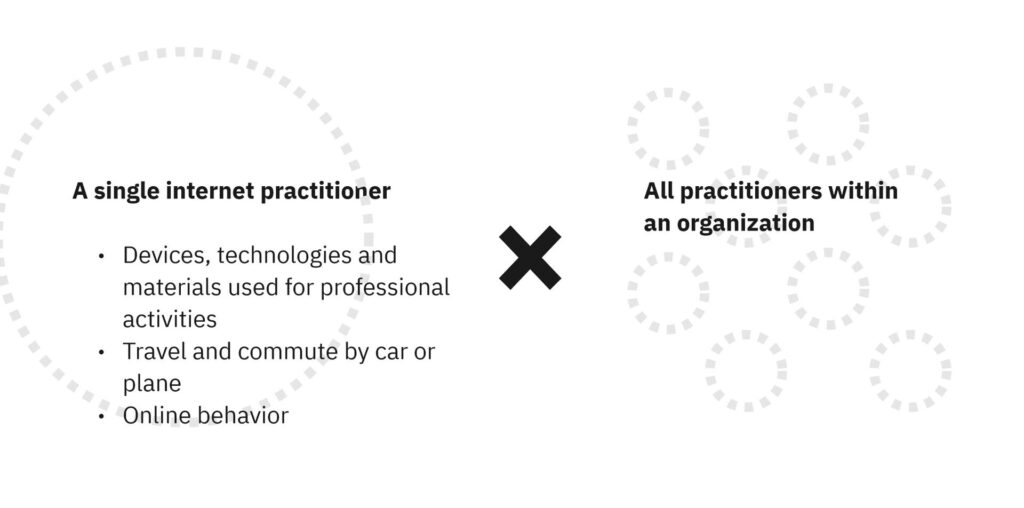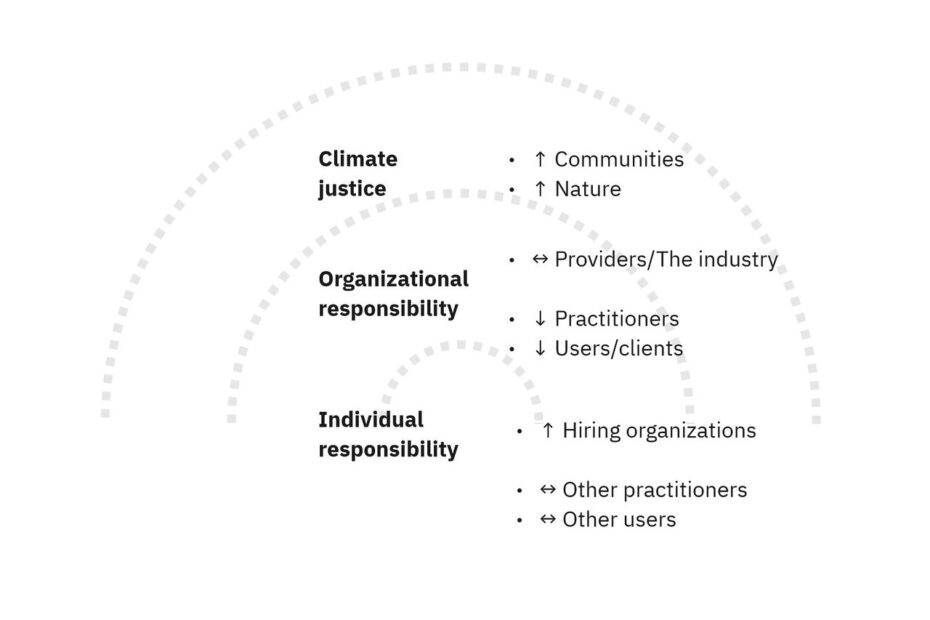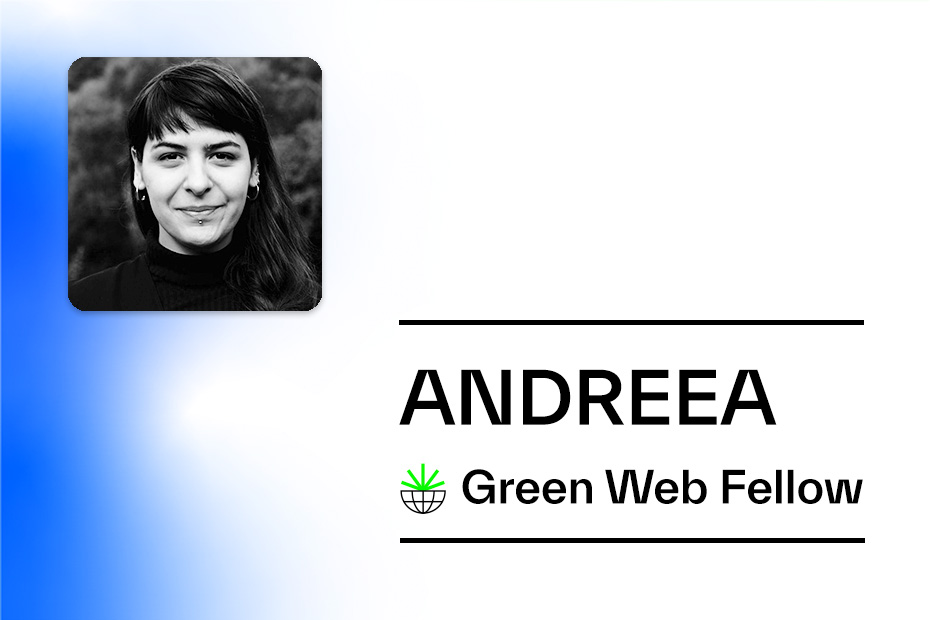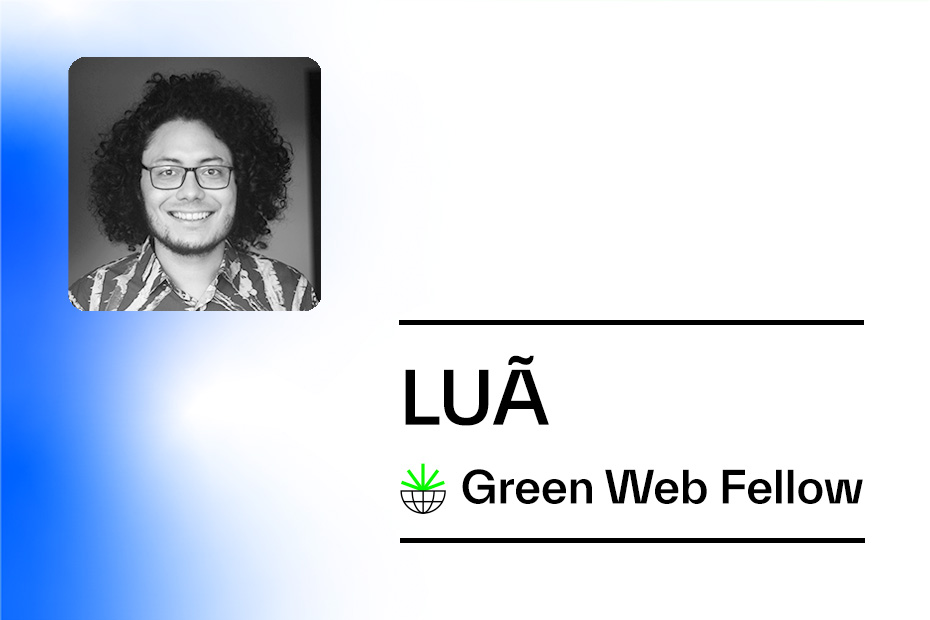During this fellowship, I wrote about the importance of narratives when we talk about sustainability, especially those about what we want from life on this planet. The way that we interact with the environment, the motivations, and the sense of urgency might be different depending on our worldview lenses. For example, I recently noted that about 64% of the energy we use in El Salvador comes from renewable sources, compared to 20% in Europe. And at the same time, it is clear that while developed nations produce more carbon emissions, developing countries are the ones most affected by climate change. I personally experienced firsthand the effects of hurricanes and other natural events on families for many years in my country, either through prevention, response, and relief activities.
For similar reasons and experiences, the discussion about sustainability in some places outside of developed countries is not focused on emissions. This makes sense, given that the fair share of industrial activities is driven by wealthier nations. But the operation of digital services might bring similar dynamics to the case of international production and trade, as Rodrigo Morales mentions where there is an unequal ecological exchange. This means that some of the poorer countries are depleting their resources at a faster rate than wealthier ones. However, there is an interesting dynamic occurring right now for digital services, where an increasing number of developers and practitioners for these organizations are based in the countries where impact is experienced mostly.
The expanding gig economy in the Global South

Over the past year, I’ve talked to many friends and colleagues in tech currently living in El Salvador, about the subject of their energy use and their relationship to the Internet. One of the pervasive ideas that I’ve come across is the fact that many of them are starting to follow similar elements in their career paths:
- Their work consists of specialized services (e.g. computer programming or graphic design) overseas
- They increasingly work from home and cover their own office or travel expenses.
- They work for companies based in the Global North (United States and Europe).
- They work primarily as contractors.
- They have never considered that their work has any environmental impact.
When researching the subject, I came to the realization that it wasn’t just my perception: organizations from the Global North are increasingly hiring highly-specialized workers from developing countries as a way to cut operation costs, and perhaps unwittingly, to reduce cooperate emissions, since this means that fewer workers are coming to an office and fewer offices are built, etc. I thought it was ironic to think of how now these individuals from the Global South, many of them highly specialized, are making critical decisions about the same technologies and services that are driving the environmental impacts in their own communities!
Of course, making these connections is not easy, which is why I am focusing my project to explore how to introduce the subject to people who engage in the gig economy and live in low-income countries. As we explore these ideas, the question to ask is: how much agency and power can be used to create environmental impact? I believe that this shift within the workforce is an opportunity to be seized by those of us who need to solve this problem the most.
A digital sustainability guide
My fellowship project consists of a syllabus for freelance workers with a focus on digital sustainability. It aims to bridge the narrative gap that individuals may experience when thinking about the impact of their work overseas and how it affects their own communities, through a series of learning materials and a self-paced assessment guide that individuals can use to reflect on their professional sustainability, their organizations’ and the effects as they experience them locally.
From the beginning of this fellowship, I have been very inspired by this type of narrative bridging done by other environmental organizations (Fashion Revolution and their Who Made My Clothes? campaign is the coolest example of this): it brings together the starting and ending points in the supply chain to tell a story, and then, it humanizes the individuals throughout its stages. I wanted to take this idea and apply it to the web, although with a twist. I believe that it is similar in the sense that it contains a long supply chain, with some elements being material and others immaterial, and for that reason, it requires a systemic view to tell a better story. Digital sustainability is composed of some narratives that will be explored through the following stages:
- Awareness of our personal footprint: while there is a risk in embracing the “ditch the plastic straw” narrative, which makes individuals look like the ones at fault for systemic issues (these are mostly driven by governments and the capitalist system as a whole), learning about our personal environmental impact is key to understanding where we stand across a large system and the extent of our influence within it.
- The make-up of these digital services: there is a lack of “materiality” present in the narratives of how digital services and organizations operate, but there is actually plenty to consider when thinking about the sustainability of these services. I used a very neat inventory of cyber-physical systems assessments that can help us dissect a physical-digital system and assess its impact.
- Consumption and other social dynamics driven by digital services: digital services are more than what we see on a screen, and are meant to impact different aspects of our lives. In this section, we assess the effects of the tangible and intangible elements of digital on societies.
- The planetary effects of digital systems: we circle back to the individual. If I write a line of code on an IDE screen, does it create a hurricane in another part of the world? What about in our own communities? Bridging these services across the world is not easy, but looking at the compound effect of digital systems close to us is key to closing the loop in understanding the impact of our work in a sustainable digital future.



